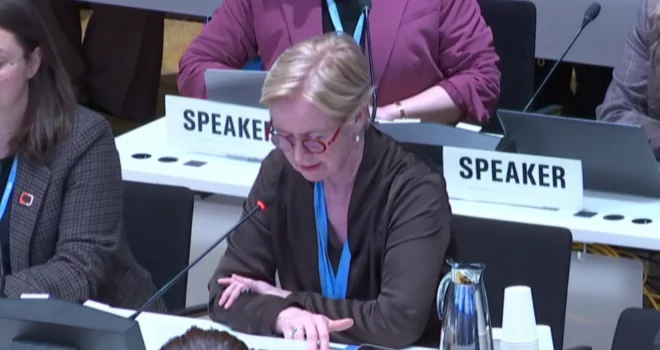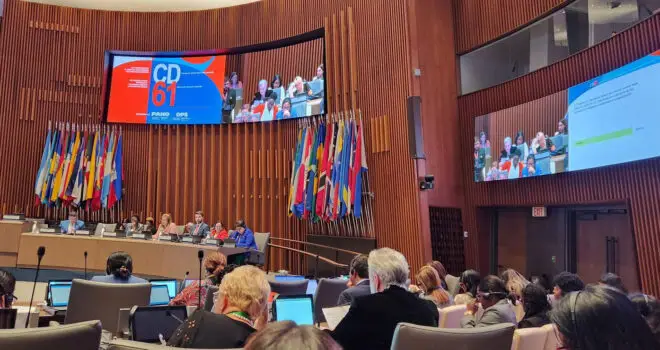The World Heart Federation (WHF) proudly represented the global cardiovascular community at the Tenth Session of the Conference of the Parties to the WHO Framework Convention on Tobacco Control (FCTC), held from 05 to 10 February 2024 in Panama City, Panama. Representatives from 142 Parties gathered to tackle a range of issues, from progress on the implementation of the treaty to the regulation of tobacco advertising, promotion and sponsorship.
Prof Jaqueline Scholz, our Tobacco Expert Group representative to the PAHO region, delivered two statements on behalf of WHF, addressing the Global Progress in Implementation of the WHO FCTC and Newer and Emerging Tobacco Products. WHF urged all Parties and stakeholders to:
- Fully implement the Framework Convention, with a special emphasis on Article 5.3 to safeguard public health from the commercial and vested interests of the tobacco industry; and
- Apply the precautionary principle and implement the recommendations outlined in the WHF policy briefs E-Cigarettes: A New Threat to Cardiovascular Health and Nicotine and Cardiovascular Health: When Poison Is Addictive to protect future generations from further harms.
WHF also endorsed a statement from the Southeast Asia Tobacco Control Alliance, advocating for a ban on plastic filters and flavours to protect the environment and young populations, respectively.
In her opening remarks, Dr. Adriana Blanco Marquizo, Head of the Secretariat of the WHO FCTC, highlighted the many progresses made since the Ninth Session of the Conference of the Parties. However, she also noted that implementation of the treaty had been slow, due to the emergence of newer tobacco and nicotine products as well as perpetual tobacco industry interference. Dr Marquizo urged Parties to remain vigilant against such interference, stressing that no country – “big or small, rich or poor, developed or developing” – was spared. In particular, she reiterated that Article 5.3 of the Framework Convention and its Guidelines for Implementation provided actionable solutions to protect stakeholders from tobacco industry interference. These concerns were echoed by Dr Marjolijn Sonnema, Vice Minister for Public Health of The Netherlands, who called for further international cooperation and concerted efforts.
As such, in response to continuous interference, the Tenth Conference of the Parties adopted the Panama Declaration, which reaffirms the fundamental and irreconcilable conflict between public health interests and the interests of the tobacco industry.
As highlighted on World No Tobacco Day 2022, tobacco damages our planet throughout its entire lifecycle – from cultivation to manufacture, distribution, consumption, and disposal – contributing significantly to air pollution and climate change, both of which adversely affect cardiovascular health. The Tenth Conference of the Parties adopted a historical decision on Article 18 to further protect the environment and public health from the devastating impact of tobacco through dedicated national policies.
Additional outcomes of COP10 include the formation of two expert groups tasked with addressing Article 2.1 and Article 19 of the Framework Convention, an extension of the Global Strategy to Accelerate Tobacco Control until 2030, and improvements to the reporting system of the WHO FCTC.
The World Heart Federation looks forward to supporting and collaborating with the FCTC Secretariat, as well as Parties, in collective efforts to end the tobacco pandemic once and for all.


